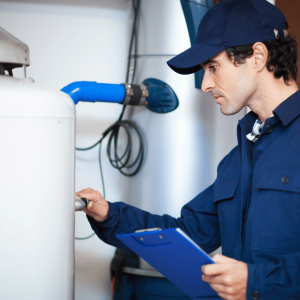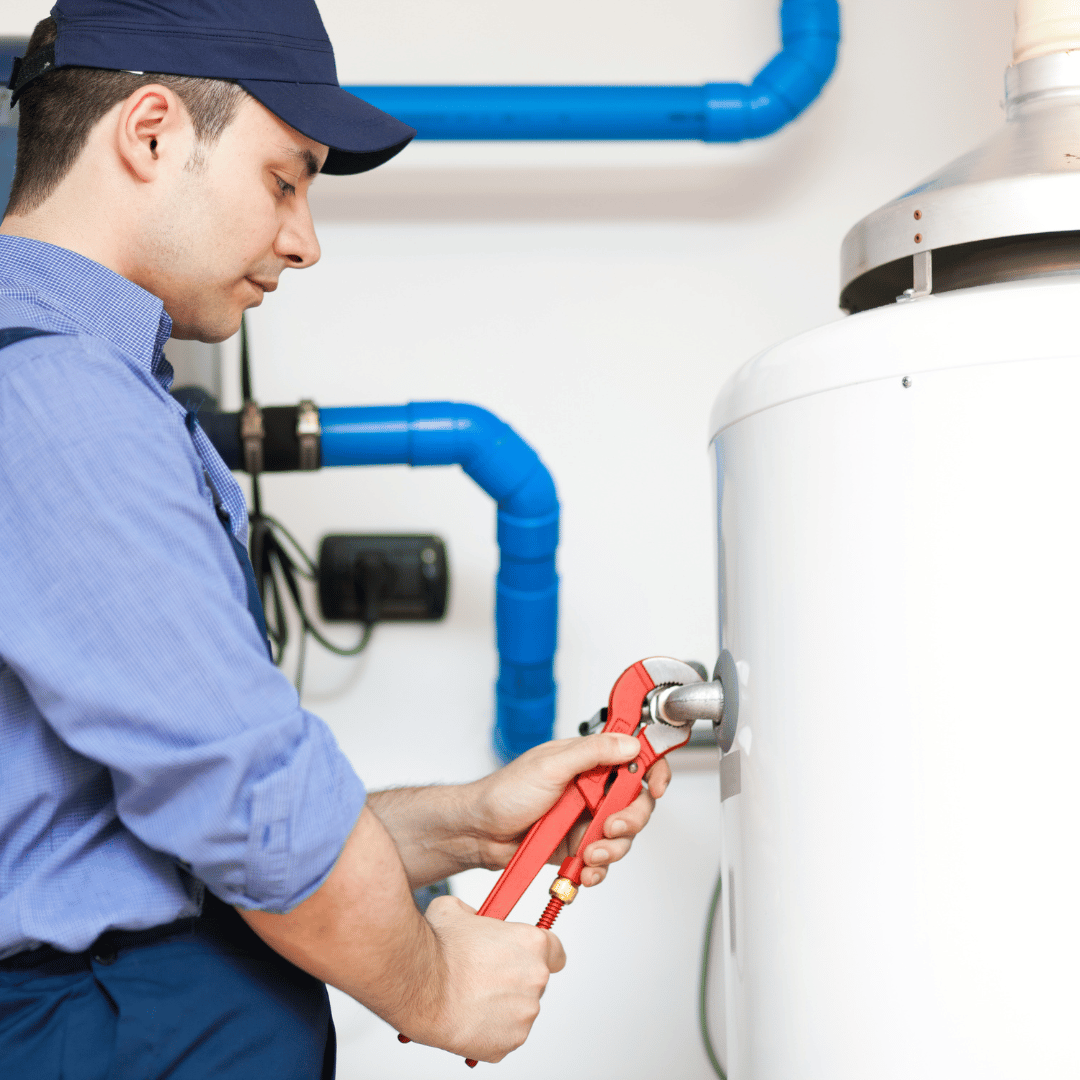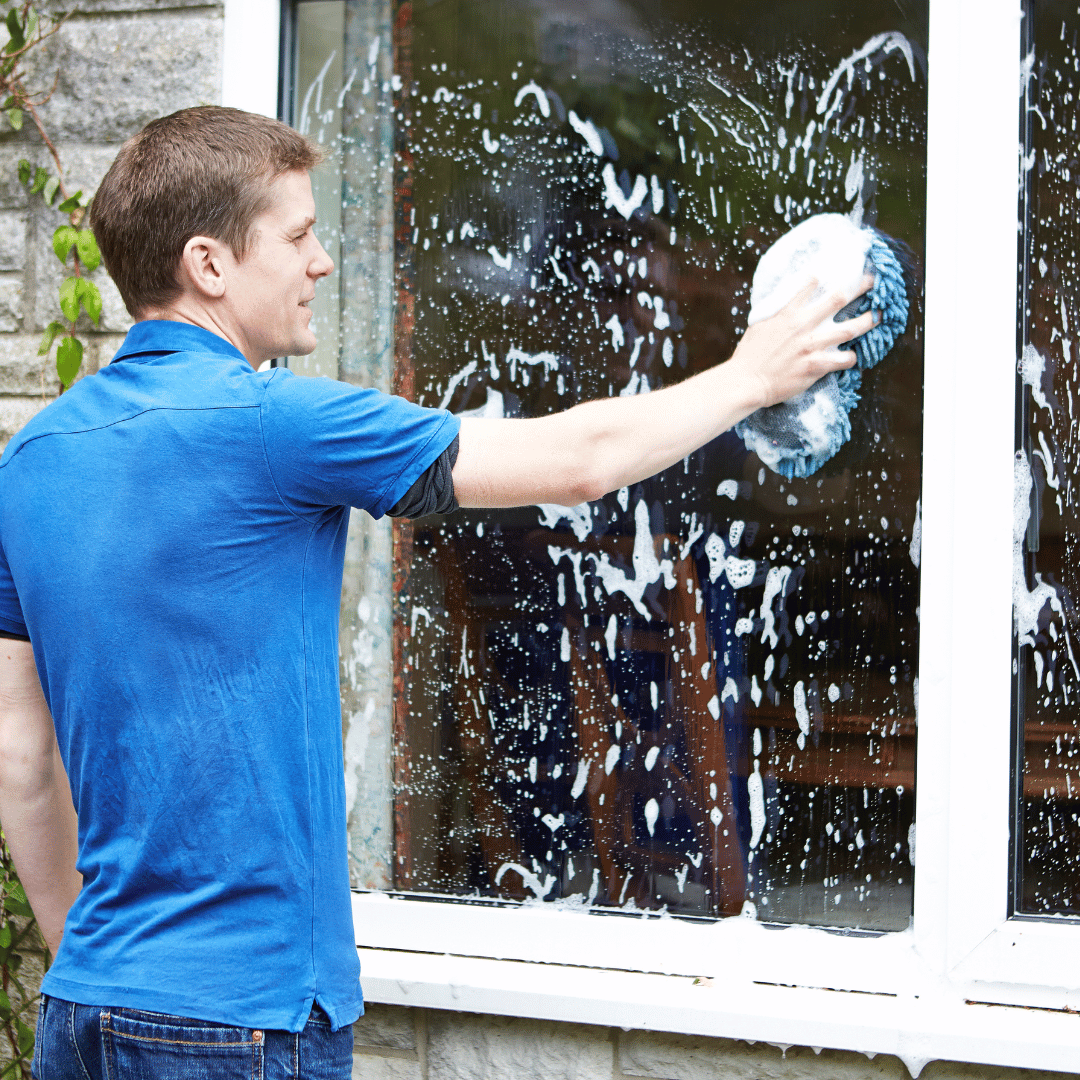
Hot Water Heater Cleaning Service: Why It’s Important and What You Need to Know
Your hot water heater plays a crucial role in keeping your home comfortable, providing hot water for showers, laundry, cooking, and cleaning. However, like all appliances, it requires regular maintenance to ensure it operates efficiently and has a long lifespan. One of the most important tasks for keeping your hot water heater in top condition is regular cleaning. Over time, minerals and sediment can accumulate inside the tank, reducing its efficiency and potentially leading to costly repairs.
In this article, we’ll dive into everything you need to know about hot water heater cleaning services, including why it’s essential, how often it should be done, and what could happen if it’s neglected. Whether you are considering professional service or tackling it yourself, understanding the cleaning process is key to maintaining a well-functioning water heater.
At HomeSmiles, we specialize in Preventative Home Maintenance services, including water heater cleaning, to help ensure your home’s systems run smoothly and efficiently. Let’s explore why keeping your hot water heater clean is so important and how you can protect it for the long haul.
Do Hot Water Heaters Need to Be Cleaned?
Yes, hot water heaters do need to be cleaned periodically. Over time, mineral deposits, sediment, and other debris naturally build up inside the tank, especially if you live in an area with hard water. This buildup can significantly reduce the efficiency of your water heater, causing it to work harder than necessary to heat water. In some cases, this can lead to issues such as fluctuating water temperatures, strange noises, and increased energy bills.
Cleaning your hot water heater helps remove these deposits, allowing the unit to operate efficiently and effectively. Regular cleaning can also help extend the lifespan of your heater, preventing costly repairs and ensuring it continues to meet your household’s hot water demands.
While it’s important to clean your water heater, this task should be performed correctly to avoid damaging the system. In many cases, homeowners opt for professional hot water heater cleaning services to ensure thorough maintenance and proper care of the unit.
How Often Should Your Hot Water Heater Be Serviced?
To keep your hot water heater running efficiently, it’s important to schedule regular service. Generally, it’s recommended to have your water heater serviced at least once a year. Annual maintenance ensures that the unit is thoroughly checked, cleaned, and inspected for any signs of wear or damage.
During this yearly service, a professional technician will typically:
- Flush the tank to remove sediment buildup.
- Inspect the anode rod, which helps prevent rusting.
- Check for any signs of leaks or wear on the tank or pipes.
- Test the temperature and pressure relief valve for safety.
For homes with hard water or if you use your water heater frequently, more frequent servicing may be needed—every 6 to 9 months. The reason is that hard water contains higher levels of calcium and magnesium, which can cause sediment to build up more quickly. Regular servicing will keep your water heater in peak condition, ensuring it continues to provide efficient and reliable hot water when you need it.
At HomeSmiles, our Preventative Home Maintenance service includes comprehensive checks and cleaning for your hot water heater, giving you peace of mind that your system is always functioning optimally.
How Often Does a Hot Water Tank Need to Be Cleaned?
The frequency of cleaning your hot water tank largely depends on the hardness of your water and the age of your system. In general, it’s recommended to clean the tank every 1-2 years. This allows enough time for sediment to accumulate at the bottom of the tank without affecting its efficiency too much.
If you live in an area with hard water, you may need to clean your water heater more frequently—typically every 6 to 12 months. Hard water contains minerals like calcium and magnesium, which can form sediment that settles at the bottom of the tank. If not cleaned regularly, this sediment buildup can reduce the efficiency of your water heater, cause it to overheat, and even lead to damage over time.
Signs that your hot water tank may need cleaning sooner than expected include:
- Decreased water pressure: If you notice that hot water is coming out more slowly than usual, sediment buildup may be restricting water flow.
- Noisy operation: A rumbling or popping sound coming from the tank is a common sign that sediment is being heated and causing pressure.
- Discolored water: If your hot water has a brown or rusty tint, it could be due to sediment buildup or even rust inside the tank.
Regular cleaning and maintenance help avoid these problems, keeping your water heater running smoothly for years to come. If you’re unsure when to clean your water heater, it’s always a good idea to consult a professional for guidance on the best maintenance schedule for your system.
How Do I Know When My Water Heater Needs to Be Cleaned?
Recognizing when your water heater needs cleaning is key to preventing long-term damage and ensuring efficient operation. There are a few common signs that indicate it’s time to clean your hot water heater:
1. Strange Noises
If you hear rumbling, popping, or cracking sounds coming from your water heater, this is a sign of sediment buildup at the bottom of the tank. As the water heater heats up, the sediment can cause bubbling, leading to noise. This buildup can reduce heating efficiency and may eventually damage the tank if left untreated.
2. Decreased Water Temperature or Inconsistent Heating
If your water heater is struggling to maintain a consistent temperature or providing water that’s not as hot as it used to be, sediment may be interfering with the heating elements or burner. Cleaning the tank can help restore the water temperature and ensure consistent hot water.
3. Rusty or Discolored Water
Rust-colored or cloudy water coming from your taps is often a sign of rust in the tank or sediment buildup. If the water is discolored only when using hot water, this typically indicates that the sediment is rusting, and cleaning is necessary to prevent further corrosion.
4. Leaks or Pooling Water
If you notice water pooling around your water heater, it could be a sign that there’s a leak caused by sediment buildup or corrosion. Cleaning your water heater regularly can help prevent leaks and prolong the life of the tank.
5. Increased Energy Bills
A buildup of sediment forces your water heater to work harder to heat water, which can lead to higher energy consumption. If you’ve noticed an increase in your energy bills without any other explanation, it could be a sign that your water heater is due for a cleaning.
If any of these issues are present, it’s time to consider having your water heater cleaned. Regular maintenance helps ensure your system operates efficiently, saving you money on energy costs and extending the life of your water heater. For professional hot water heater cleaning services, HomeSmiles is here to assist with your water heater maintenance needs.
What Happens if You Don’t Flush Your Water Heater?
Neglecting to flush your water heater can lead to several issues, some of which can be costly and time-consuming to repair. Here’s what can happen if you skip this important maintenance step:
1. Sediment Buildup
The most immediate effect of not flushing your water heater is sediment buildup at the bottom of the tank. As your water heater heats water, minerals from hard water, like calcium and magnesium, settle at the bottom of the tank. Over time, this buildup can reduce the efficiency of the heater, causing it to work harder to produce hot water. This results in higher energy consumption and increased utility bills.
2. Reduced Heating Efficiency
As sediment accumulates, it can form a thick layer at the bottom of the tank, insulating the water from the heating elements. This reduces the efficiency of the heater and can cause uneven heating, leaving you with lukewarm or inconsistent hot water. In extreme cases, the heating elements may become damaged due to the prolonged strain of trying to heat water through the sediment layer.
3. Increased Wear and Tear on the Heater
When sediment isn’t flushed out regularly, it can lead to excessive wear and tear on the internal components of your water heater. This includes the heating elements, thermostat, and the tank itself. Over time, the sediment can cause corrosion and rust, shortening the lifespan of the unit and leading to expensive repairs or the need for a full replacement.
4. Potential for Tank Leaks
As sediment settles in the tank, it can also cause areas of the tank to overheat, which may lead to cracking and rusting. These cracks and weakened areas can eventually result in leaks, which can cause water damage to your home and create a much larger repair issue than a simple cleaning.
5. Decreased Water Quality
Sediment buildup can affect the quality of the water coming out of your taps. You may notice that the hot water has a cloudy or rusty appearance, which can affect both the taste and the cleanliness of the water. This can also impact the performance of appliances such as dishwashers and washing machines, which rely on clean water for optimal performance.
By ensuring your water heater is flushed regularly, you can avoid these problems and keep your system running efficiently. Neglecting maintenance can lead to costly repairs, higher energy bills, and a shorter lifespan for your water heater. Regular hot water heater cleaning is a small investment that can pay off significantly in the long run. If you’re unsure when the last time your water heater was cleaned, consider scheduling a professional service from HomeSmiles to ensure it’s in top condition.
How Much Does It Cost to Have Someone Flush Your Water Heater?
The cost of flushing your water heater can vary depending on several factors, such as the type of water heater, the size of the tank, and the service provider. On average, homeowners can expect to pay between $100 and $200 for a professional water heater flushing service. Some companies may offer flat-rate pricing, while others may charge based on the complexity of the job or any additional maintenance services included.
Here’s a breakdown of what factors can influence the cost:
1. Type of Water Heater
If you have a traditional tank-style water heater, the cost to flush it will typically be lower than for a tankless water heater, which may require more specialized care. Tankless heaters don’t store water, but mineral buildup can still occur in the internal components, requiring a more detailed cleaning process.
2. Size of the Tank
Larger water heaters generally require more time to flush and clean, which could increase the cost. A typical residential water heater ranges from 30 to 80 gallons, with larger tanks often requiring more work to ensure sediment is thoroughly removed.
3. Condition of the Water Heater
If your water heater has significant sediment buildup or is showing signs of corrosion, the cost may be higher due to the additional work required to address these issues. Some providers may offer extra services, such as inspecting or replacing the anode rod or checking for leaks, which could add to the overall price.
4. Service Provider
The cost can also vary depending on where you live and the service provider you choose. Some companies may charge more for emergency or after-hours services, while others may offer discounts for regular maintenance plans or bundle services together.
5. Additional Maintenance
Many professional services include other maintenance tasks during a water heater flush, such as inspecting the heater’s safety valve, checking the temperature, and testing the overall performance of the unit. These added services can increase the cost but help ensure that your water heater is in optimal condition.
While it’s a good idea to compare prices and get quotes from several providers, it’s important to choose a company that offers reliable, high-quality service. At HomeSmiles, we provide affordable and thorough hot water heater cleaning services, helping homeowners maintain the health of their water heaters without breaking the bank.
Regular cleaning can prevent the need for costly repairs down the road, making it a wise investment for the long-term health of your home’s water heating system.
Regular hot water heater cleaning is an essential part of maintaining your water heating system and ensuring it operates efficiently. Whether it’s removing sediment buildup, preventing costly repairs, or extending the lifespan of your unit, a clean water heater helps you avoid unexpected issues and keeps your hot water flowing smoothly.
By addressing the need for regular servicing, you can save on energy costs, enjoy more consistent hot water, and prevent more significant problems down the road. Ignoring the cleaning and maintenance of your hot water heater can lead to decreased performance, higher utility bills, and even the need for a replacement sooner than expected.
If you haven’t had your water heater cleaned recently or if you’re noticing signs that it needs attention, don’t wait for a breakdown. HomeSmiles offers professional hot water heater cleaning services that ensure your system runs efficiently for years to come. Our preventative home maintenance services cover all aspects of your home, so you can focus on what matters most.
Ready to give your water heater the care it deserves? Contact HomeSmiles today to schedule your hot water heater cleaning and experience the benefits of regular maintenance! Let us help you keep your home in top shape with our expert preventative home maintenance services.
- Protecting Your Property: Why the Right Cleaning Method Makes All the Difference
- The #1 Thing That’s Dulling Your Curb Appeal (And How to Fix It)
- How Maintenance Bundles Provide Peace of Mind for Busy Small Business Owners and Facility Managers
- Essential vs. Complete Home Packages: Choosing the Right Preventive Care for Your Property
- How a Simplified Service Model Benefits Both Homeowners and Franchisees Alike


